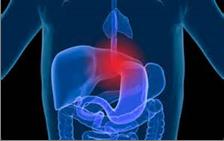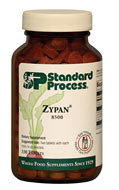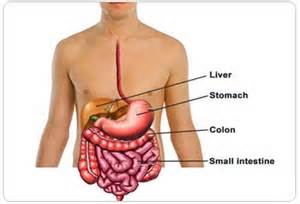Hiatal Hernia,
Heartburn Reflex - GERD
Heartburn Reflex - GERD

|
Hippocrates |
Is your body burning to tell you something? The health of your digestive system is as crucial as the health of your brain. In fact, many chronic conditions start with poor digestion, sending out clues in the form of indigestion and heartburn. For many people, ignoring these signs over time can lead to a more severe condition.
Scientists estimate that more than 60 % of Americans suffer from acid reflux disease, also known as gastro esophageal reflux disease or GERD, in which acid from the stomach flows up into the esophagus, causing discomfort, inflammation and sometimes scarring.
Thanks to never-ending advertising, many people go to their doctors looking for an antacid or proton pump inhibitor (PPI) when they have acid reflux. But using these pills long-term could mask the signals your body is sending out and keep you from finding the real cause of your acid indigestion.
If you think you may have acid reflux symptoms or you’ve already received a diagnosis, it’s important to know that you have much more control than popping a pill gives you. The good news is that symptoms of acid reflux respond extremely well to natural changes in diet and lifestyle - and you just may not need that prescription for a PPI to stop your body’s acid production. It’s simply a matter of figuring out where to begin.
GERD - or gastro esophageal reflux disease - is the medical term for acid reflux. Until fairly recently heartburn wasn’t taken too seriously. But we now know that heartburn and GERD can have serious and even life-threatening complications, including scarring, constriction, ulceration, and ultimately, cancer of the esophagus.
you may experience include:
- Burning pain in your chest (heartburn) or upper abdomen
- Irritation in your throat
- Acid taste in your mouth
- Bad breath
- Laryngitis
- Chronic cough
- Difficulty swallowing
- Nausea

Although acid reflux is common, it can be serious. Over time, acidic stomach contents can wear away the esophagus, eroding the delicate tissue, and causing inflammation and scarring. It can sometimes even lead to erosion of tooth enamel and, in extreme cases, to esophageal cancer. In fact, one in ten people with GERD go on to develop dangerous changes in the esophagus that can increase their chances of esophageal cancer.
The problem of acid reflux begins when the pressure between the lower esophageal sphincter (the valve between the esophagus and the stomach) and the stomach is altered. Under normal circumstances, our muscles act with gravity to create pressure to push the food we eat downward from the esophagus into the stomach. With GERD, the pressure from the stomach below increases over the pressure from above, and the mixture of food and acid that should stay in the stomach comes splashing back up.
- Why you have acid reflux
- What H. pylori bacteria has to do with acid reflux
- What are common signs of low stomach acid
- What testing are the best
- What is Zypan test
- What Diaphragm has to do with acid reflux
- How to diagnose and treat Hiatal Hernia
- Why Medications for GERD Can Do More Harm than Good
- How Your Antacid Drug is Making You Sick
- 8 steps that naturally prevent and improve your GERD











